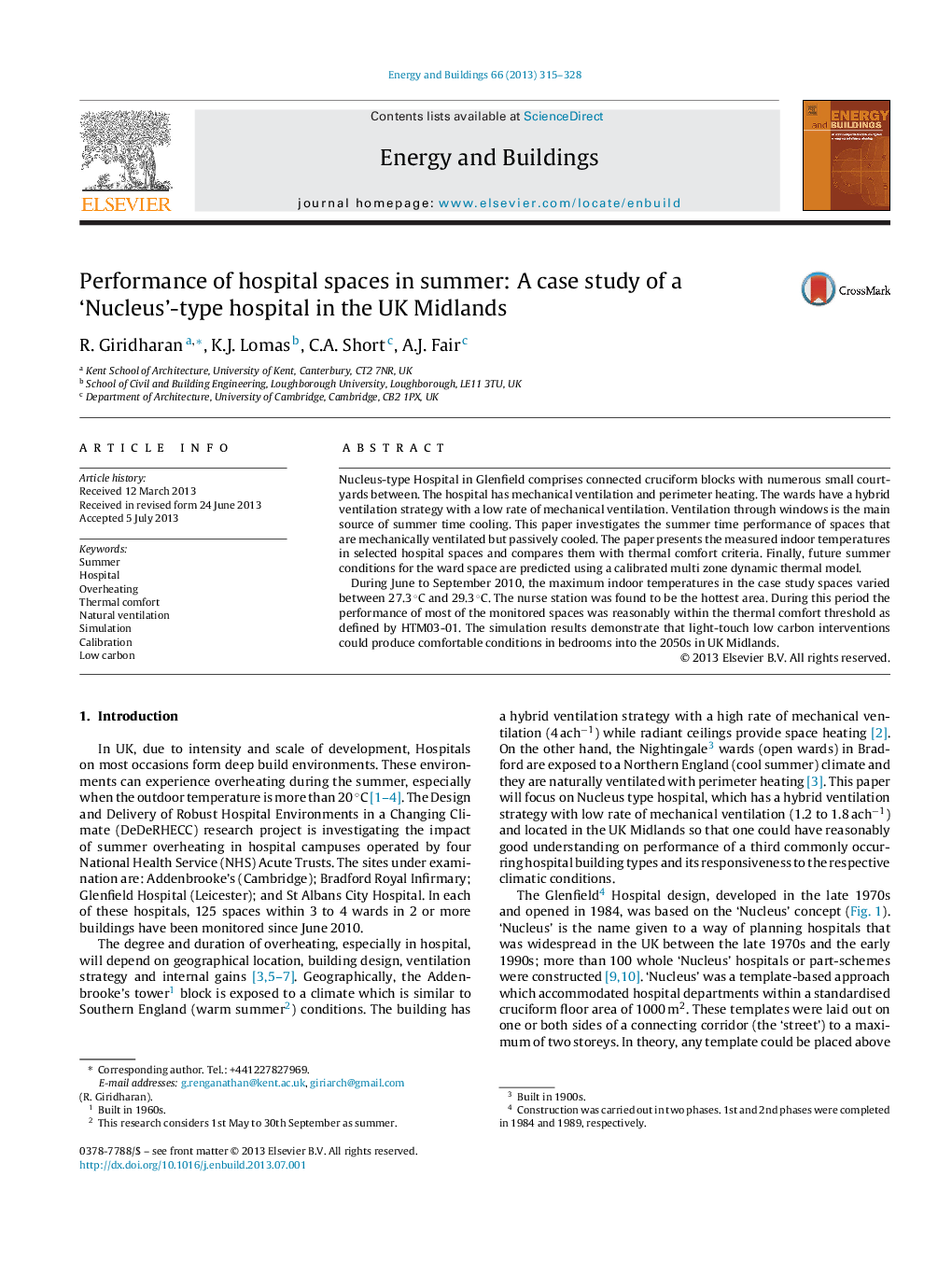| Article ID | Journal | Published Year | Pages | File Type |
|---|---|---|---|---|
| 6734680 | Energy and Buildings | 2013 | 14 Pages |
Abstract
During June to September 2010, the maximum indoor temperatures in the case study spaces varied between 27.3 °C and 29.3 °C. The nurse station was found to be the hottest area. During this period the performance of most of the monitored spaces was reasonably within the thermal comfort threshold as defined by HTM03-01. The simulation results demonstrate that light-touch low carbon interventions could produce comfortable conditions in bedrooms into the 2050s in UK Midlands.
Related Topics
Physical Sciences and Engineering
Energy
Renewable Energy, Sustainability and the Environment
Authors
R. Giridharan, K.J. Lomas, C.A. Short, A.J. Fair,
